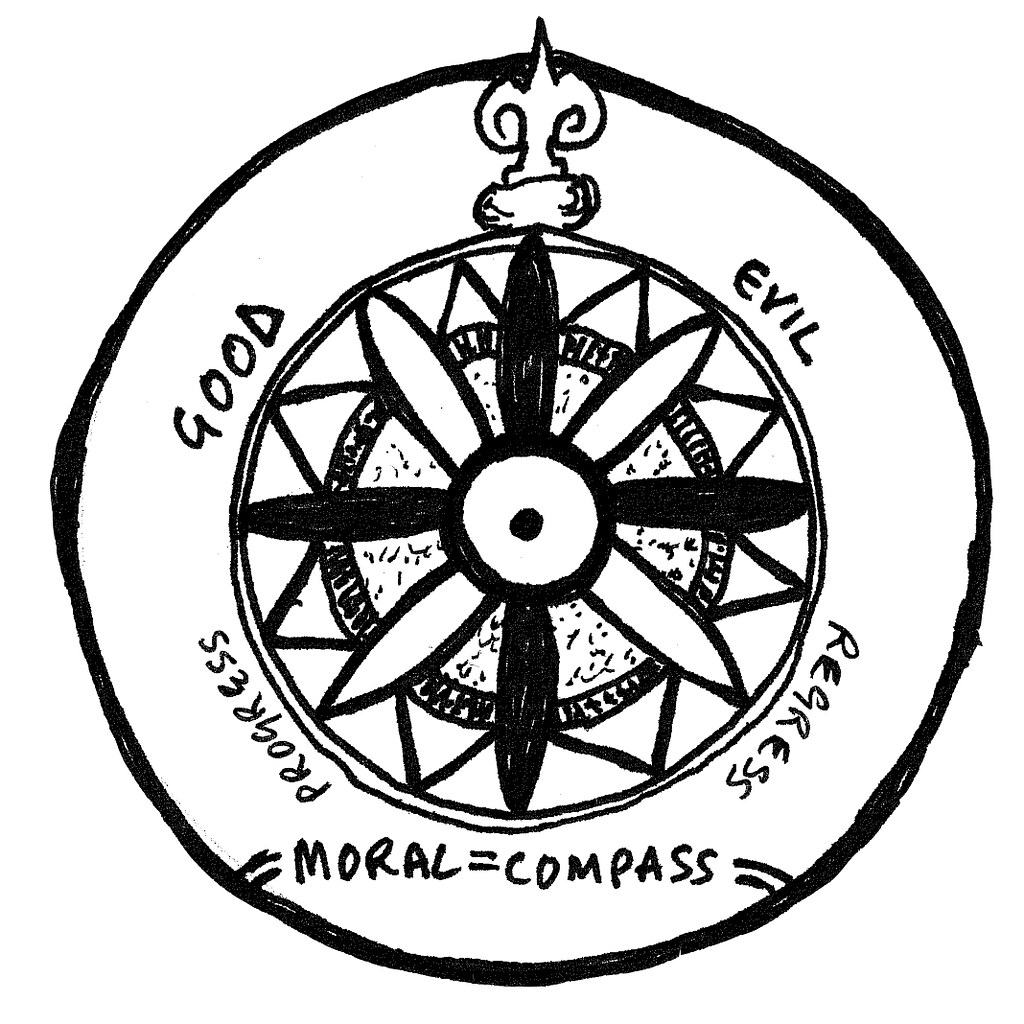Eric Turley

Credit: “Moral Compass” by psd is marked with CC BY 2.0.
Moral Politics Theory was introduced by George Lakoff in his 1996 book titled Moral Politics: How Liberals and Conservatives Think. His theory centers on the idea that the political beliefs of conservatives and liberals have at their basis two differing models of parenting. Moral Politics Theory, along with the literature surrounding it, focuses on how an individual’s moral beliefs influence the type of governance they support. Lakoff’s belief that “a moral system defines how one views the world” leads to his categorization of the moral belief systems that, to him, form conservative and liberal beliefs. The parenting models introduced by Lakoff are the strict father model, which relates to conservative thinking, and the nurturant parent model, which relates to liberal thinking. In introducing these models, Lakoff finds that each model has opposing categories of thought. Conservative thinking, the strict father model, has categories such as promoting self-discipline and self-reliance and promoting punishment for defying authority or lacking self-discipline. Liberal thinking, the nurturant parent model, has categories such as promoting empathy and fairness and helping and protecting those who cannot help or protect themselves. Matthew Feinberg and Elisabeth Wehling in “A Moral House Divided: How Idealized Family Models Impact Political Cognition,” describe the importance of Moral Political theory when they write, “MPT provides a comprehensive explanation of two fundamental scientific puzzles: where do political attitudes come from, and why do attitudes on so many seemingly unrelated political issues tend to group together into a left-right divide?”
Matthew Feinberg, Elisabeth Wehling, Joanne M. Chung, Laura R. Saslow, and Ingrid Melvaer Paulin researched these two parenting models in 2020 in their article “Measuring Moral Politics: How Strict and Nurturant Family Values Explain Individual Differences in Conservatism, Liberalism, and the Political Middle.” They sought to distinguish moral traits from moral belief systems by looking at the two parenting models, supported by their idea that:
much of the political disagreements between conservatives and liberals are not disagreements about what citizens should be like, but rather disagreements about how citizens should be governed—that is, how government should regulate citizens’ behavior and meet their needs (moral governance).
They also expand on how parenting dynamics affect Moral Politics Theory. Their study demonstrates that an individual’s political beliefs are linked to their moral reasoning. Moral reasoning, or moral belief systems, are predicated on the strict father and nurturant parent models. They find that overlaps in beliefs surrounding economic and social stances, ideas that are typically separated, are part of an individual’s larger political profile. Feinberg et al. also describe in detail the metaphorical basis, the “nation-as-family” metaphor, for these models. They describe the idea that a person’s political belief, their conception of the ideal form of governance, is one that aligns with how one structures their ideal family. Conservative beliefs are modeled after promoting a child’s self-growth and reliance, while liberal beliefs are modeled after empathy, support, and fairness. Their findings when looking at moderates, those whose political ideals tend to fall between conservatism and liberalism, provide interesting rhetorical information for politicians looking to sway moderate voters. Biconceptualism is found insofar as those in the “political middle” tend to endorse both the strict father and nurturant parent models, and these biconceptual moderates “tend to adhere to whichever moral worldview is made salient.”
Sources
- Feinberg, Matthew, and Elisabeth Wehling. “A Moral House Divided: How Idealized Family Models Impact Political Cognition.” PLOS ONE, vol. 13, no. 4, 2018.
- Feinberg, Matthew, Elisabeth Wehling, Joanne M. Chung, Laura R. Saslow, and Ingrid Melvær Paulin. “Measuring Moral Politics: How Strict and Nurturant Family Values Explain Individual Differences in Conservatism, Liberalism, and the Political Middle.” Journal of Personality and Social Psychology: Personality Processes and Individual Differences, vol. 118, no. 4, 2020, pp. 777–804.
- Lakoff, George. Moral Politics: How Liberals and Conservatives Think. University of Chicago Press, 2016.
